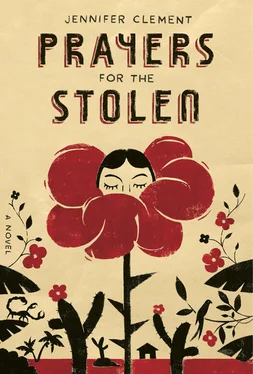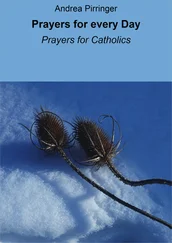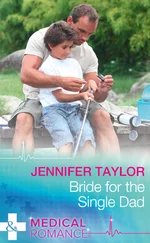I told Maria that Paula and Concha had left the mountain forever.
I told Maria about the photographs. When Maria heard about the photographs she stood up.
Ruth? Maria said. Did you ask about Ruth?
On the mountain everyone was sure that the disappearance of Ruth and the stealing of Paula were related.
I shook my head.
I didn’t ask. I’m sorry, I said.
I watched Maria rub her finger over her harelip scar. The day of the operation I watched my mother and Ruth smoke a whole pack of Salem cigarettes. The menthol smoke filled the beauty parlor. As little girls Maria and I used to steal the butts from Ruth’s ashtray and suck on the filters as if they were a Halls Mentho-Lyptus. I could taste the mint filters as I looked at Maria’s face.
Did you look at them carefully? Did you look and see if one of the women in the photos was Ruth?
No.
Let’s go.
We stood and marched out of the schoolroom toward my house. We walked quickly, almost skipping, filled with the hope of finding Ruth’s face in the photographs. In our foolish dream we ran through the jungle filled with a silly joy.
It was that fast, fast like an arm that becomes a snake. Her arm moved. I saw the shadow on the wall and then, so fast, like when a scorpion lifts up its tail or an iguana zaps its tongue out into a hive-like vapor of gnats. That fast. My mother had the small silver pistol in her hand and everything was ready. It was as if the whole Sierra Madre grew still. I heard the sound of crushed bone and that was a sound I’d never heard before.
I heard the sound of crushed bone as that bullet went into Maria, into my half-sister, into my father’s other daughter, into the daughter that looked just like him.
This can happen after ten bottles of beer mixed with tequila. If they’d drawn my mother’s blood into a syringe, her blood would have been yellow. If her blood had been placed in a test tube and held up to the light it would have been pure Corona. But no one would do a test or call the police on our mountain.
Calling the police was like inviting a scorpion into your house. Who does that? my mother always said.
What happened to my mother that afternoon? The light held that moment between afternoon and dusk. In that light, that is almost not light, who did she think was at her threshold?
I knelt beside Maria and looked into my father’s face. I looked at her face and it was like looking into a lake. Under the surface, as if I could see a lakebed of stones and silver fish, I could see her torn face, the stitches, and the scars of the harelip.
I could feel the warm blood in my hands as I opened her clothes to look at the wound.
When Maria opened her eyes we looked at each other.
What was that? she asked.
Where the hell did you get that gun, Mother? I spat the words at my mother as I placed my hand around Maria’s waist.
Mike.
I wanted to hold onto my mother as she faded and left the planet forever just as Maria’s blood baptized our piece of jungle.
Take me back to a minute ago; take me back to a minute ago, my mother said.
The clocks were turning backward in her mind. Rewind, she was thinking. Press rewind.
My mother had always told me that death was on time and never late.
The room darkened from a cloud moving overhead. I could hear the sound of a parrot outside.
As my mother sat down in a heap on the floor she said, She’ll be fine. It was just a scratch.
I wrapped Maria’s arm in a dishtowel and placed my arm around her waist. Together we stumbled out of the house and down our mountain.
There was no one on the highway. A few large passenger buses whizzed by. The black asphalt burned under our plastic flip-flops and the heat made the car oil on the road turn blue and green.
After standing in that devil heat for twenty minutes a few taxis drove past but it seemed to take forever to get a taxi to stop and take us to the hospital. No taxi drivers want blood in their cars. As soon as I said we were going to the hospital, they took one look at Maria’s face. When their eyes followed her face down to her arm, which was wrapped in a dishtowel, the taxi drivers hit the accelerator and took off. In Guerrero there are some taxis that have a cardboard sign on their dashboard that says No Bloody Bodies .
I kept looking at Maria’s arm and hoping the dishrag could contain or even stop the flow.
A taxi driver finally stopped and agreed to take us.
He looked at Maria’s arm.
No, I’m not bringing that in here unless you put it in a plastic bag, he said.
He reached over to the glove compartment, took out a plastic supermarket bag, and handed it to me.
Put the arm inside it.
What did he say? Maria asked.
Put your arm in the bag or you’re not getting in here.
I carefully took Maria’s wounded arm and placed it in the supermarket bag as if it were a leg of lamb.
Okay, her arm is in the bag, I said. Let’s go!
Knot it at the end.
Sorry?
Tie it up.
I took the ends of the bag and made a small knot with the corners of the plastic at the top of her arm. She let me do this to her without protest. It was as if, now that my mother had shot it, her arm belonged to my family.
So, who were you bothering? the taxi driver asked as we drove down the highway.
The only people in all of Mexico who knew what was going on in the country were the taxi drivers. If we wanted to know about something that had happened, we’d say, Take a taxi. It seemed to me that someone should get all the taxi drivers together, someone like Jacobo Zabludovsky (the old journalist who my mother swore was the very last noble person in the whole of Mexico), and ask them what the hell was going on in our country. My mother always said that there was a taxi driver out there who knew exactly what had happened to Paula and Ruth.
The drive to Acapulco took less than an hour. I wanted to tell Maria that she was my half-sister and that my mother had shot her because, in my mother’s drunken state, she thought that Maria was our father. But I had to keep quiet because I knew that taxi driver’s ears were standing on end to hear the news.
The man had a boxer’s hands: huge knuckles covered in scars. He gripped the steering wheel fiercely. The man even turned off his radio in order to hear any information that might come out of the back seat.
So, who were you bothering? the taxi driver asked again.
I decided not to answer and held Maria in the circle of my arm.
He looked at us in his rearview mirror.
You must have been a bad, bad girl to deserve a shooting, right?
He was a man with black curly hair shot with gray. He had deep smile wrinkles at the edges of his eyes.
It was an accident, I said.
An accident? That’s what everyone says.
Please.
She’s a bad girl, he said as if Maria were not there. He’s going to go to jail; you know that, don’t you?
Yes.
He’s going to go to jail. As soon as they see a gunshot wound in the emergency room the doctors there, you know, well, they have to notify the police. That’s a law.
It was an accident.
I bet it hurts.
I pressed my lips together. His face never stopped looking at mine in the rearview mirror. I had to keep looking away. He was observing me more than watching the road.
That must really hurt, he said.
It sure does, I answered.
Hey, doesn’t your friend know how to talk? I’ve always said if someone doesn’t talk then they’re hiding a thing or something.
Yes, it hurts, I said. She can’t talk because it hurts.
Why don’t you let me see your little boobies? he said. I’ll give you your money back if you show me. Your hurt friend doesn’t have to show me anything, just you.
Читать дальше












